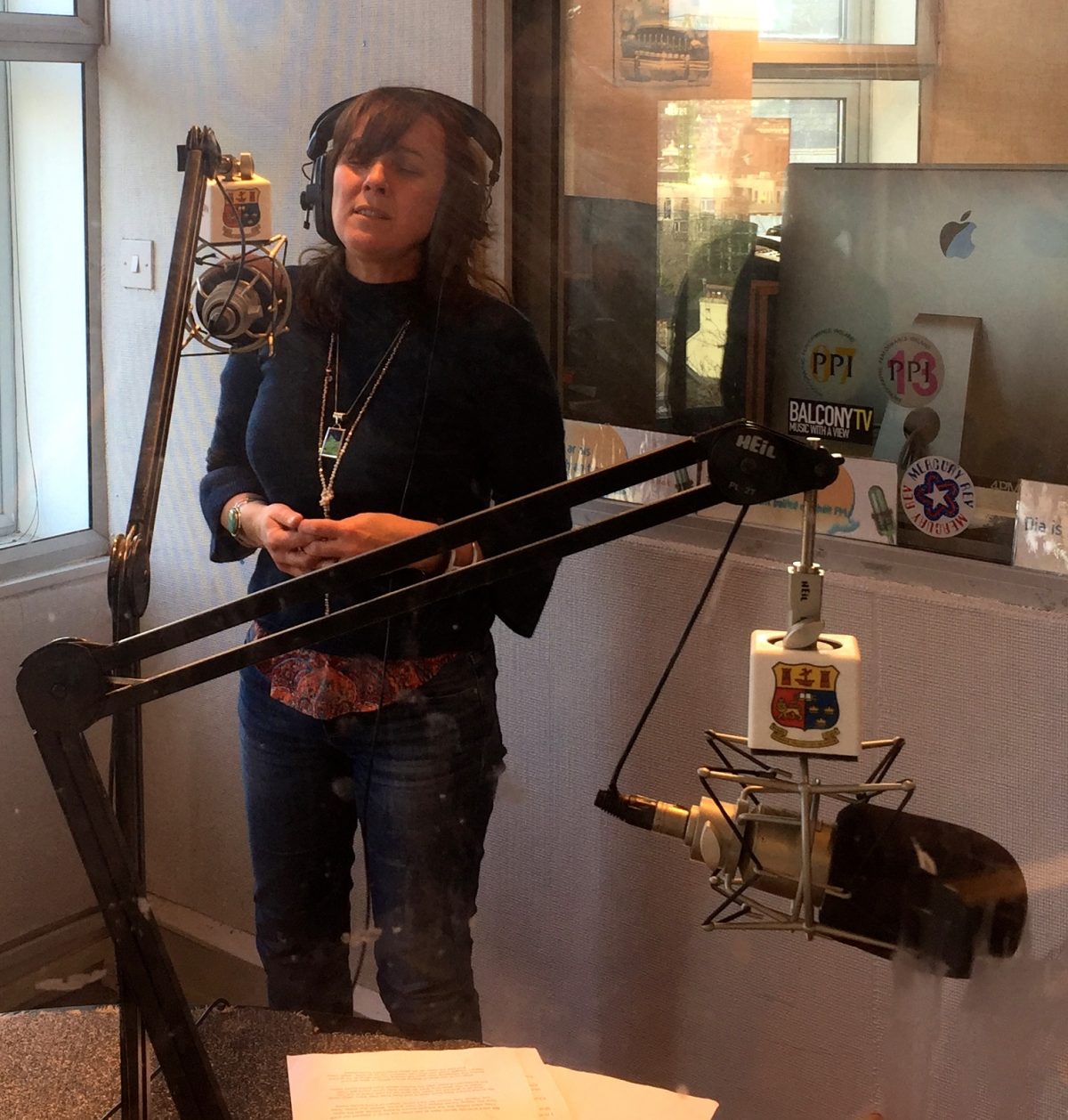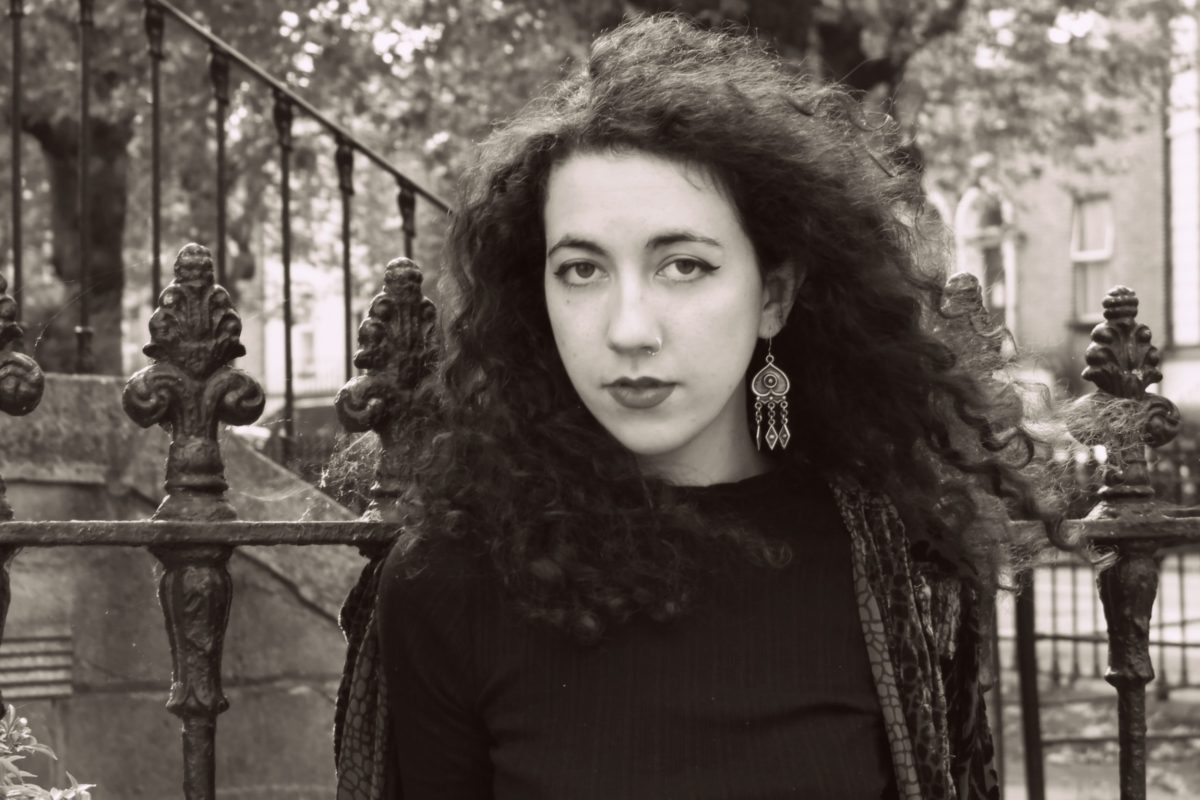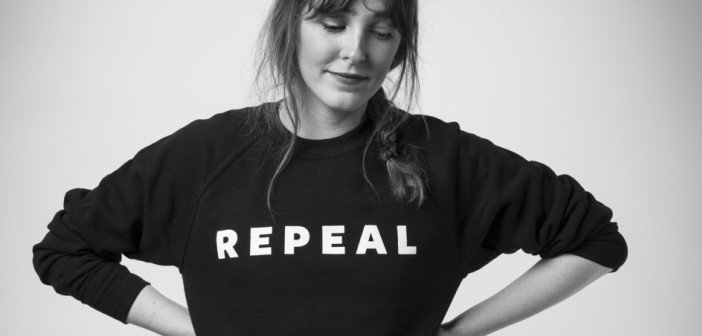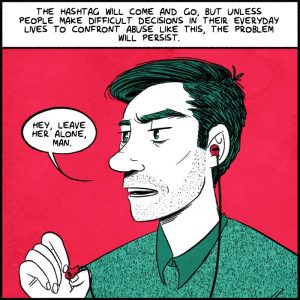Here’s the third part of my Songwriting Women radio series which was broadcast on UCC 98.3 fm . It features Karan Casey, a well known traditional singer and songwriter who lives in Cork . Karan sings live in studio and talks about her background and her music tastes from jazz through to folk . She also talks about her own writing and shares her inheritance tracks which range from vocal jazz by Bobby McFerrin to River by Joni Mitchell.
Category: Feminism
Songwriting Women Part 2: Maija Sofia
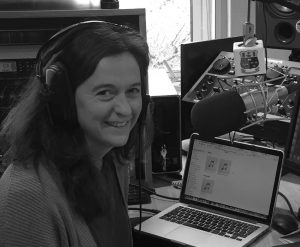
By taking female singer-songwriters in Ireland as an example of a Community of Practice and employing some principles of Participatory Action Research and #TransformDH I am conducting qualitative interviews with practitioners in order to gather information about this particular community . The idea is to approach this from a feminist perspective in a similar way to #Wakingthefeminists and link to others working in the field through #soundingthefeminists and other initiatives.
In this interview which was recently broadcast on Campus Radio UCC 98.3 FM I talk to Maija Sofia about her songwriting influences, her practice and her experience as a woman in the music industry. She also treats us to acoustic versions of two new songs.
I started out by asking her how she described her music and whether she considered herself as sitting in a particular genre. The player below sometimes takes a couple of clicks but it does work
In the second half of the show I invited Maija Sofia to place herself on an imaginary bill alongside some of her songwriting heroes. Here’s the playlist from the show :
- Maija Sofia The Girl Who Pulled the Sun Down
- The Kinks Waterloo Sunset
- Aldous Harding Horizon
- PJ Harvey Rid of Me
- Joanna Newsome Clam, Cockle, Cowrie
- Abigail Joffe The Love We Make
- Kate Bush Moving
- Nico I’ll be your Mirror ( fragment)
Maija Sofia’s music is available to listen to here
These music recordings are licensed for online broadcast and playback under UCC98.3fm
Songwriting Women Part 1 : Ciara O’Flynn
I’m hosting a weekly radio show on Thursdays at 12pm on UCC Campus Radio 98.3fm . I’ll be shining the light on women and songwriting and in particular on some local Cork women’s voices. Here’s the first of my interviews with Ciara O’Flynn from the band Pinhole.
Ciara reminisces about growing up around the Cork contemporary music scene and reflects on her influences and chosen playlist which includes Sheela na Gig by PJ Harvey and Cathy Davey’s Snitch. She talks about her songwriting process and themes and we get a pre-listen of some brand new songs from the band’s upcoming album . The show kicks off on a different theme as I play a few jazz numbers inspired by the recent Cork jazz festival.
She’s looking a bit nervous here but you’d never know it from the interview.
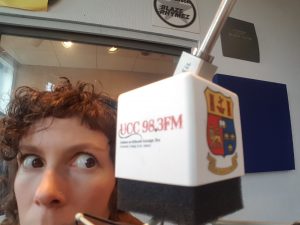 Singer-songwriter Ciara O’Flynn
Singer-songwriter Ciara O’Flynn
Feminist Hashtivism in Ireland – DAH Colloquium Review
UCCDAH Research Colloquium Review October 2017
 Dr Abigail Keating: Feminist Hashtivism & The Irish Context
Dr Abigail Keating: Feminist Hashtivism & The Irish Context
Hashtivism (hashtag activism) is a relatively new social media phenomenon that has grown in prevalence over the last number of years to the extent that the hashtag is now a ubiquitous and recognisable symbol even to those who do not engage with social media. Hashtagging has entered our every day lexicon and hashtivism has demonstrated its power to mobilise people into action, from its early use in The Occupy Movement to the Repeal the 8th hashtag which is now according to Dr Abigail Keating, the second most frequently used hashtag in Ireland.
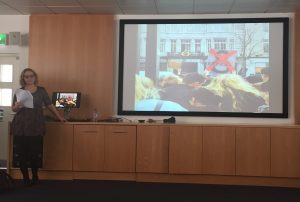 On Wednesday, October 11th, Dr Keating was the guest speaker in the DAH Active Learning Space at UCC and presented a fascinating overview of her research into feminist hashtivism in the Irish context. Coming from a film and media studies background Keating has a particular interest in pop culture participation and specifically in issues of control, representation and autonomy of women across screen media and in particular in the digital arena. She asserts that hashtivism allows new opportunities of representation for women and new ways to voice concerns that are at the heart of the feminist movement. This at the same time that according to her, many other more traditional modes of communication have been closed off to women.
On Wednesday, October 11th, Dr Keating was the guest speaker in the DAH Active Learning Space at UCC and presented a fascinating overview of her research into feminist hashtivism in the Irish context. Coming from a film and media studies background Keating has a particular interest in pop culture participation and specifically in issues of control, representation and autonomy of women across screen media and in particular in the digital arena. She asserts that hashtivism allows new opportunities of representation for women and new ways to voice concerns that are at the heart of the feminist movement. This at the same time that according to her, many other more traditional modes of communication have been closed off to women.
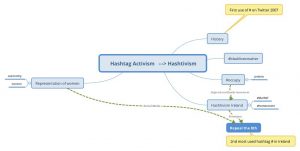 She traces the trajectory of the social media activist movement from the Arab Spring to the rise of the use of the hashtag in the Occupy movement and that movement’s global reach, through Black Lives Matter and then to the crucial impact it had in the Irish context during the marriage referendum with #MarRef and #hometovote. Irish hashtivism is following international trends and Keating sees the use of the hashtag as a democratisation of the digital space, citing Henry Jenkins blog about the Occupy movement:
She traces the trajectory of the social media activist movement from the Arab Spring to the rise of the use of the hashtag in the Occupy movement and that movement’s global reach, through Black Lives Matter and then to the crucial impact it had in the Irish context during the marriage referendum with #MarRef and #hometovote. Irish hashtivism is following international trends and Keating sees the use of the hashtag as a democratisation of the digital space, citing Henry Jenkins blog about the Occupy movement:
She refers to the power of transmedia use of the hashtag as it moves beyond its own platform. By journalists picking up on hashtag threads, those who are not directly engaged with the conversation on social media are still likely aware of particular hashtags and their message as they are reproduced through other forms of more traditional media. This to some extent counterbalances some demographic disadvantages of the hashtag in terms of its generational and social impact. Most users of Twitter are women under 40.
Dr Keating maintains that the hashtag is an indicator of a grassroots movement although she acknowledges its extensive use by corporate interests and advertising. Again echoing Jenkins she describes how no one person owns the movement and this can both benefit and damage it as the hashtag is adopted by counter views and trolls. That said an advantage of this openness is the possibility for online dialogue between opposing viewpoints.
What Dr Keating presents is more an informative and interesting overview of her research and less a critical argument. According to her, hashtag activism provides a more democratic opportunity for the representation and autonomy of women and feminist issues. This occurs at the same time that, according to her, many other more traditional modes of communication have been closed off to women, although she does not elaborate on why she believes this to be so. Given though that women are the primary users of social media, it makes sense that feminist hashtivism has become so well used.
Soon after this talk the #Metoo hashtag exploded on Twitter in the wake of the Harvey Weinstein sexual abuse allegations, providing a current live example of feminist hashtivism. Since this hashtag went viral Twitter reports more than 1.7 million men and women have used it in 85 countries as well as millions more on Facebook.
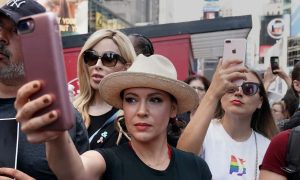 And yet, to what extent does this kind of activism create real and lasting social change? Is it just a ‘me too’ copy cat medium that makes me part of the social media club? Do I as a woman want to closely identify with the social media influencers to who I am most aligned and is this just a trendy quick and easy way to express solidarity without actually having to do anything except check my phone?
And yet, to what extent does this kind of activism create real and lasting social change? Is it just a ‘me too’ copy cat medium that makes me part of the social media club? Do I as a woman want to closely identify with the social media influencers to who I am most aligned and is this just a trendy quick and easy way to express solidarity without actually having to do anything except check my phone?
The wider media is responding and the cartoons below are from The Nib, an online comics journal. Questions are being raised, such as how appropriate it is for women who have experienced trauma through sexual abuse or harassment to explore this in such a public domain and without in depth explanation or support. Is there now huge pressure on women to come forward and tell their stories? What if I don’t want to be part of #MeToo, #Repealthe8th or whatever the current campaign is and how long before it is replaced in the headlines by the next viral hashtag? Will it all be forgotten and I and all the others left with the private repercussions of exposing my story?
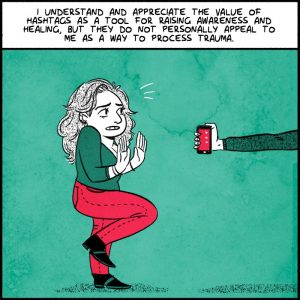 Debate is healthy and one thing is without doubt: hashtags both initiate and revive debate at a speed or participatory level that could never have been imagined just a few years ago. As to how profound their impact will be over time, we shall have to wait and see.
Debate is healthy and one thing is without doubt: hashtags both initiate and revive debate at a speed or participatory level that could never have been imagined just a few years ago. As to how profound their impact will be over time, we shall have to wait and see.
